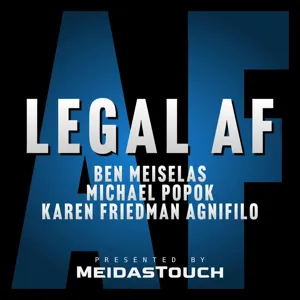Podcast Summary
Social Security facing potential cash crisis: Without Congressional action, Social Security could run out of cash within the next decade, potentially leading to automatic benefit cuts for 60 million Americans
Social Security, which is the largest federal budget program and pays out over $1.2 trillion annually in retirement benefits, is facing a significant challenge. The latest report from the Social Security trustees reveals that without action from Congress, the program could run out of cash within the next decade, potentially leading to automatic benefit cuts for approximately 60 million Americans. The situation is serious, and it's essential to understand how we arrived at this point and what can be done to address it. NPR's chief economics correspondent, Scott Horsley, joined the show to discuss the current state of Social Security finances, the potential solutions, and the reasons why lawmakers have yet to take decisive action. Stay tuned to learn more.
Baby boomers' retirement impacting Social Security's financial health: Despite slight improvement, Social Security's financial situation remains precarious due to baby boomers' retirement and declining birth rates.
Social Security's financial situation has improved slightly due to increased worker productivity and fewer disability claims. However, this improvement is merely a reprieve from the larger issue of demographics, specifically the impending retirement of the baby boomer generation. With over 76 million baby boomers retiring and collecting benefits for longer periods due to better health, the number of retirees is outpacing the number of workers contributing to the system. This imbalance, which was once 5:1, is now around 3:1 and is expected to continue worsening. The Trustees Report also highlighted the ongoing decline in US birth rates, further exacerbating the issue. In essence, Social Security's financial health is still precarious due to the demographic time bomb posed by the baby boomer generation.
Social Security's Financial Crisis: Running Out of Money: Social Security faces a financial crisis, with benefits exceeding taxes and a dwindling surplus. Without Congressional action, benefits could be reduced by 21% in 9 years, causing significant income loss and potential political, economic disasters.
Social Security is facing a significant financial crisis. The system is currently paying out more in retirement benefits than it collects in taxes, and this gap is being covered by a dwindling stockpile of surplus cash. According to the trustees' report, this surplus is expected to run out in about 9 years, at which point benefits would have to be automatically reduced by about 21%. This would result in a significant decrease in income for many retirees, potentially leading to political and economic disasters. It's crucial for Congress to address this issue and find a solution before the trust fund is depleted. The longer they wait, the more difficult and costly a solution may be.
Addressing the Financial Challenge of Social Security: Experts propose raising taxes or cutting benefits to address Social Security's financial crisis, but a compromise solution remains elusive due to political complexities. Social Security benefits are inadequate for many workers and addressing this issue requires bipartisan cooperation and tough decisions.
The Social Security system in the United States is facing a significant financial challenge due to the retirement of baby boomers and the erosion of traditional pensions. The solution, according to experts, involves raising taxes, cutting benefits, or a combination of both. However, the politics of implementing these solutions are complex. Democrats propose raising taxes on high earners, while House Republicans suggest cutting benefits by raising the retirement age and adjusting the benefit formula. Despite the financial urgency, a compromise solution seems elusive. The longer we wait to address this issue, the more difficult and costly it will be to implement changes. It's important to note that Social Security benefits are inadequate for many workers, especially those without workplace retirement plans. Addressing this issue requires bipartisan cooperation and a willingness to make tough decisions.
Political Reluctance to Address Social Security's Financial Issues: Despite the urgency to address Social Security's financial issues, politicians are reluctant to make deals, leading to potential crisis
The ongoing debate around fixing Social Security's financial issues has seen little progress, with politicians reluctant to make deals similar to those made in the 1980s when taxes were raised and the retirement age was increased. This reluctance to compromise is particularly concerning given the narrowly divided Congress and the urgent need for a timely course correction. However, with politicians seemingly out of practice at making such deals, the situation may continue to worsen, leading us closer to a potential crisis. It's essential to stay informed about the political landscape surrounding Social Security to understand how this issue could impact you in the future. Listen to the NPR Politics Podcast for in-depth analysis and insights on the campaign trail. American Express and Sutter Health are proud sponsors of this podcast, providing valuable resources and services to help individuals and businesses thrive.






